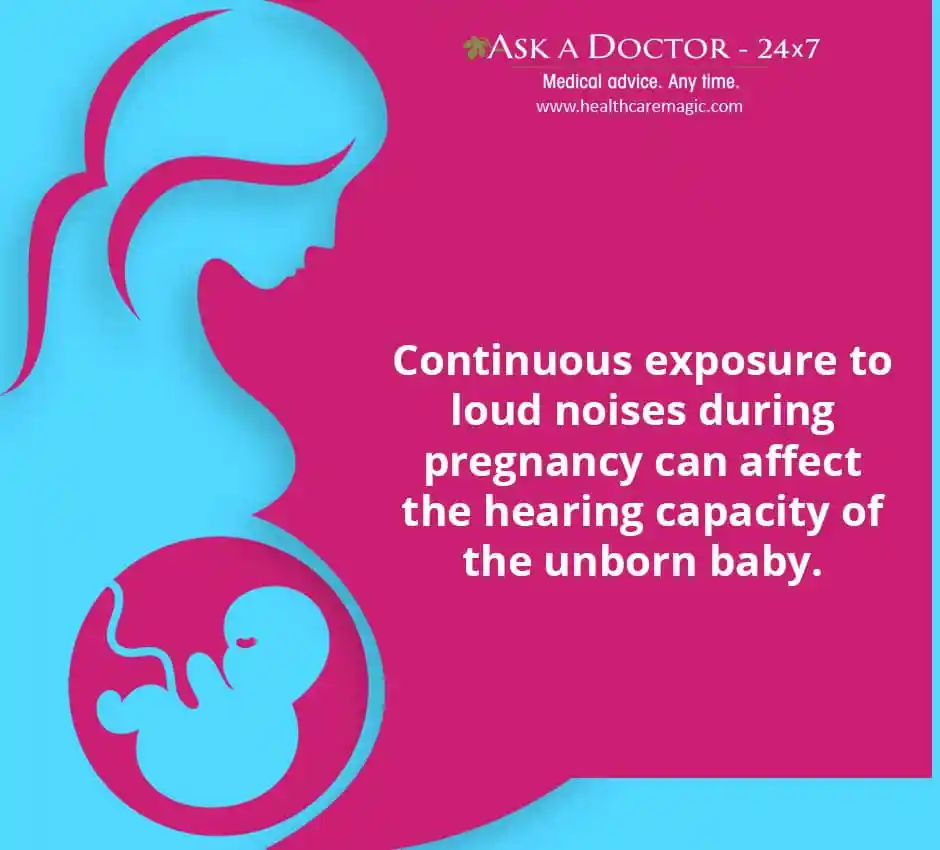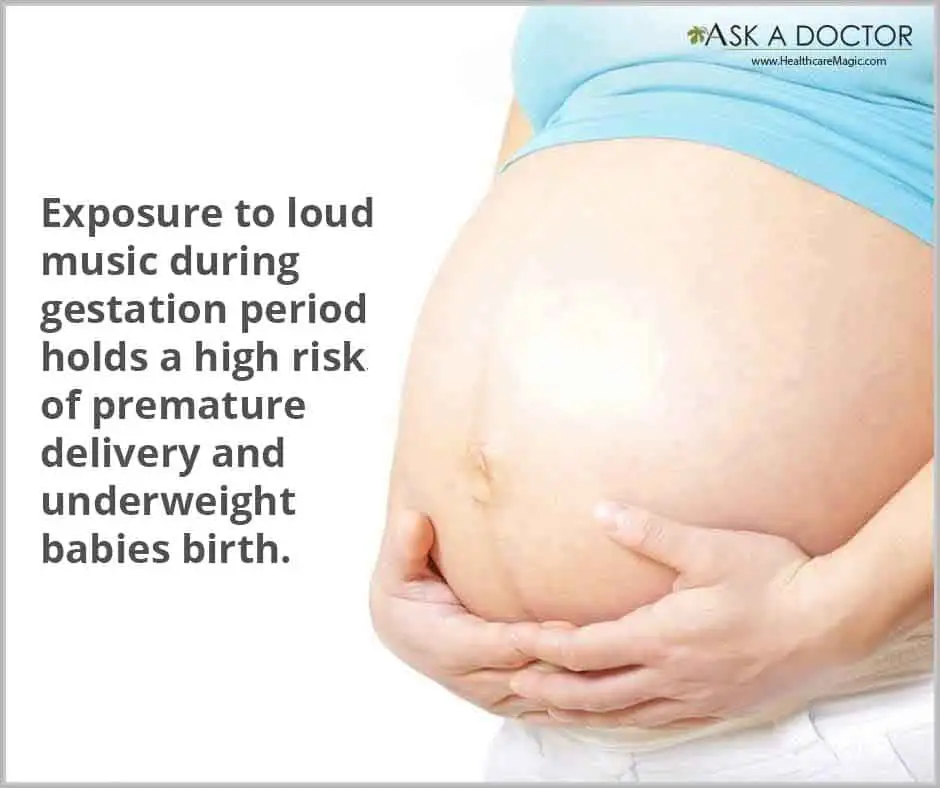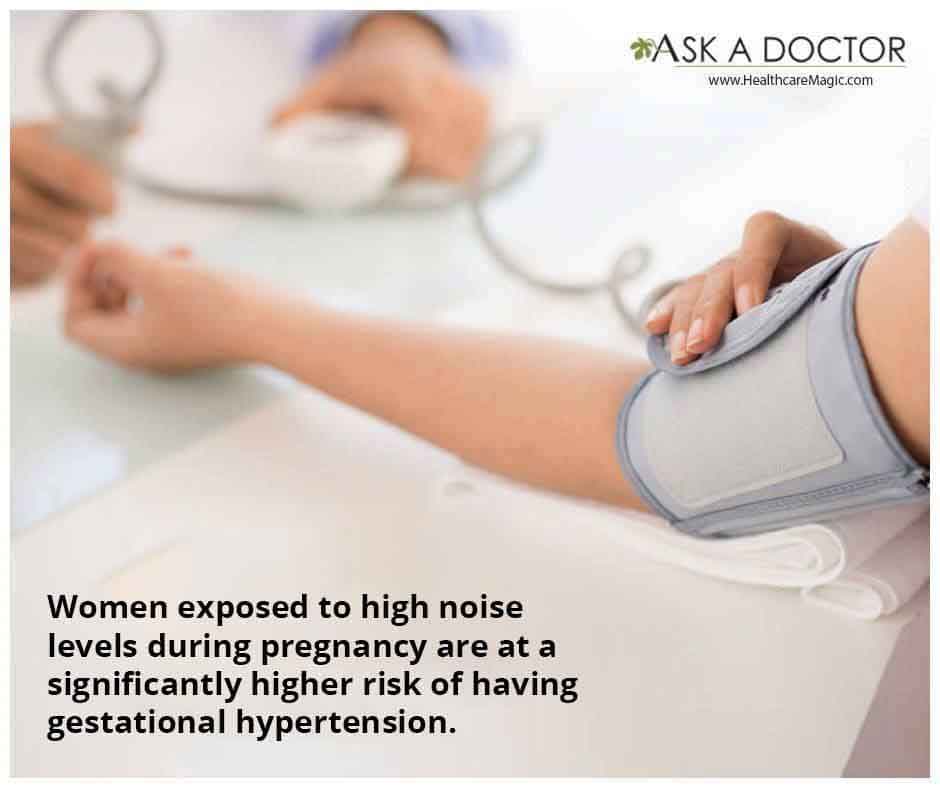Is It Dangerous Listen To Loud Music Or Noise During Pregnancy
Listening to good music or soft numbers during pregnancy is indeed very soothing to the mental and physical well-being of a would-be mommy and her baby! But, if you raise the pitch of the same music to high frequency, it can turn annoying and can even have a detrimental effect on the baby in the womb. Yes! You read it right! Exposure to loud sounds during pregnancy is not safe. Studies from all across the world have shown that a noisy environment can affect the health status of a mother and the growing fetus.
Let’s examine about the adverse effects of noise pollution on pregnancy and some remedies to overcome it.
Harmful Effects of Noise Pollution on Pregnancy
It is important to note that at around 16 weeks of pregnancy, the baby starts detecting some mild noises. By 24 weeks, the baby's hearing ability becomes stronger and starts responding to a wide variety of sounds and voices.
During this crucial period, it is essential to refrain from loud noises as it can cause:
Fetal hearing loss

During pregnancy, continuous exposure to loud noises of over 90 to 155 decibels, sourcing from one's workplace, airplanes, rock concerts, music devices, and more can affect the hearing capacity of the unborn baby. To prove this, a recent study by the Institute of Environmental Medicine (IMM) at Karolinska Institute shows that pregnant women working in an environment with high decibel levels are risking their babies’ hearing abilities. The study concludes that pregnant women should not be exposed to loud noises.
Premature delivery

Prolonged exposure to loud noises can affect fetal development. An article published in the American Academy of Pediatrics journal shows that pregnant women exposed to 80 decibels at their workplace were at a high risk of premature delivery and underweight babies. It also states that loud sounds can reduce the gestational age resulting in early birth. In fact, the study insists upon women of childbearing age and expectant mothers to wear hearing defenders at their work environment.
Congenital disabilities, abortion, and fetal death

According to a Chinese study, noise pollution during the first trimester of pregnancy puts the fetus at a risk of intrauterine growth retardation or even fetal death. It can affect the chromosomes responsible for normal development and function of the fetus. A loud noise can lead to poor development of vasculature, nervous system, and brain of the fetus, resulting in cognitive issues or abnormal social behavior following birth. On the whole, babies of women exposed to loud sounds at their workplace did have physiological and behavioral defects.
Gestational hypertension

Scientists from the Medical University of Plovdiv have shown that pregnant women who are exposed to high levels of occupational and residential noise are at a higher risk of having gestational hypertension or pre-eclampsia.
Measures to Avoid Loud Sounds During Pregnancy

Preventive measures
- Frequent exposure to loud sounds of jet engines should be avoided.
- Pregnant women should avoid hearing gunshots at a firing range.
- Attending concerts or being around loud music is not considered safe for pregnant women.
- Watching loud and scary movies should be avoided during pregnancy.
- Staying away from large crowds and loud vehicle noise is also critical when pregnant.
- Pregnant women should not work in an environment with noisy machines.
Control measures
- Pregnant women working in a noisy place need to use ear-protection aids such as earmuffs, noise helmets, ear-plugs, headphones, and others to reduce occupational noise pollution.
- Pregnant women should stay alert and attentive to noise-activated warning signs and creation of noise control zones that provide warnings about high noise levels. This can help them stay away them from loud sounds.
- Pregnant women should not lean on surfaces that emit high levels of sound vibrations.
Treatment options

Loud sounds during pregnancy can cause chronic stress, pulsatile tinnitus, etc. Even the fetus in the womb may get affected by serious health hazards.
Here are some effective conventional and alternative therapies to combat it:
- Exercise or do yoga. Regular exercise or yoga can help reduce stress or tinnitus caused by noise pollution during pregnancy. Also, it can bring more positive thoughts and aid in a healthy pregnancy. Regular workout during pregnancy also improves blood circulation, which in turn may help reduce symptoms of tinnitus.
- Eat balanced diet. A low-salt, healthy and well-balanced diet will not only keep you energetic but will also help reduce hypertension and stress caused by loud noises. So focus on what you choose to eat!
- Listening to any soft, relaxing music can provide good body relaxation and helps to get good sleep.
- Seek professional help. If the you happen to get exposed to noise environment quite frequently, it becomes crucial to talk to an ENT Specialist or an Occupational Physician who will conduct an effective and comprehensive check-up and provide the best treatment options. Also make sure to consult even a gynecologist and a pediatrician, as their advice will add more value to the treatment.
It is essential to seek immediate medical advice as soon as such symptoms are recognized. Ignoring them can be harmful to the mother, as well as the baby.
For more information on the effects of loud music during pregnancy, ask an online ENT specialist today.
Ask a Specialist
Recent Questions


